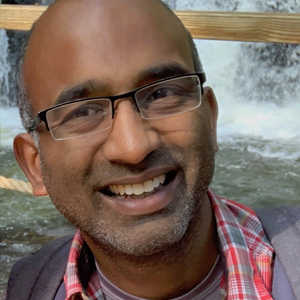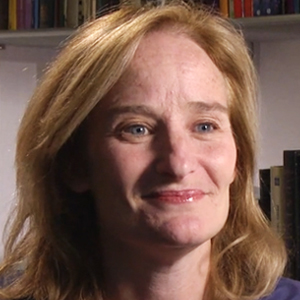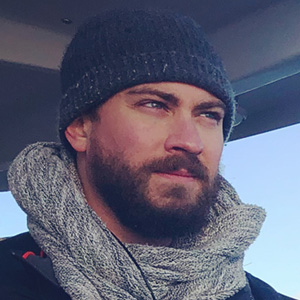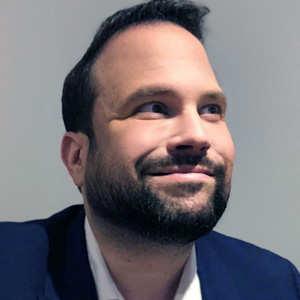
Kiran is a senior member of the technical staff at Sandia National Laboratories, in the machine intelligence group. His research has been marked by extensive interdisciplinary efforts that bring together the social and computational sciences, and his work revolves around the question of social influence, whether in linguistic behavior, information diffusion, attitude change, or behavior diffusion. He has experience with developing online experiments (using the Controlled, Large Online Social Experimentation platform) to study these topics. Recently, he has been investigating games—from massively multiplayer online games to board games—as a means to study global conflict. Kiran has a background in artificial intelligence, multi-agent systems, and computational social science. He holds an MS and PhD in computer science from the University of Illinois at Urbana-Champaign.
I am most excited to work on projects that… can shed light on social behavior.
I’m looking for partners that can help me… develop and deploy games to study global conflict and nonproliferation.
A moment when I felt most inspired in my work was… when I saw the power of games to excite and inform individuals.
Innovations in my field that I am most excited to work on… are the ability to study, reach out, and inform people of all cultures and backgrounds through games on the internet.

Rachel oversees the Bulletin of the Atomic Scientists’ publishing programs, management of the Doomsday Clock, and a growing set of activities around nuclear risk, climate change, and disruptive technologies. Before joining the Bulletin, she served for eight years at the Chicago Council on Global Affairs and taught global energy as an adjunct professor at the Kellogg School of Management. Prior to that, she served as senior fellow and director of Middle East studies at the Council on Foreign Relations in New York, senior fellow for international security affairs at the Center for Strategic and International Studies, and fellow at Harvard University’s Belfer Center for Science and International Affairs.
Rachel’s writings have appeared in many publications, including Foreign Policy, Foreign Affairs, andThe New York Times, and she has appeared as a commentator on numerous radio and television outlets. She is also author of the bookThicker Than Oil: America’s Uneasy Partnership With Saudi Arabia (Oxford University Press, 2006). Rachel holds a BA in history from the University of Pennsylvania and an MA and PhD in political science from Columbia University.
I am most excited to work on projects that… connect art and science. The Bulletin has been thinking its way through a new arts and science initiative to connect its work to larger audiences who care about the health and security of our planet.
I am looking for partners that can help me… develop this initiative, including those who are involved in similar programs elsewhere, are artists working in this space, know of other successful models, or can help me identify potential minefields or golden opportunities.
A moment when I felt most inspired in my work was… at the launch of the Turn Back the Clock exhibit at the Museum of Science and Industry when I saw two years of work transformed into a three-dimensional display. To this day, I’m inspired every time I go to the museum and see people milling through the exhibit thinking about nuclear risk and climate change, the Doomsday Clock, and the future of our planet.
Innovations in my field that I am most excited to work on… connect our important issues more directly to the rising generation.

As senior associate on ReThink Media’s peace and security team, Deepika works at the intersection of politics, media, and policy. She enjoys the rare opportunity of being a communications expert who also has issue area expertise, providing strategic media advice that is deeply grounded in the issues while keeping in mind the needs of experts and groups. Deepika works with dozens of policy experts, think tanks, and advocacy organizations across a range of national security issues. Her main areas of expertise include North Korea, Iran, international nuclear weapons treaties, the US nuclear weapons arsenal, the Pentagon budget, nuclear security, and endless war. Her work ranges from rapid response crisis communications and connecting reporters with experts to providing media trainings and crafting digital strategy, all in service of making our world a safer place.
I am most excited to work on projects that… get everyday people excited or provide a “wait, what—really?!” moment.
I am looking for partners that can help me… think and learn in ways I’m not usually comfortable with.
A moment when I felt most inspired in my work was… when experts (who happened to be women) got a media hit or seized an opportunity they wouldn’t have before.
Innovations in my field that I am most excited to work on… are storytelling, interpersonal connections, pop culture, the arts, and incorporating visual data.

Eric is a playwright, filmmaker, and journalist best known for his investigative reporting. He is the author of three bestselling nonfiction books: Fast Food Nation (2001), Reefer Madness (2003), and Command and Control: Nuclear Weapons, the Damascus Accident, and the Illusion of Safety (2013). Command and Control—which focused on the management of America’s nuclear arsenal during the Cold War and a nuclear weapon accident in Damascus, Arkansas—was a finalist for the 2014 Pulitzer Prize in History. He has also written long investigative pieces for The Atlantic, The New Yorker, and Rolling Stone. Eric has served as a producer for four documentary films, including the Oscar-nominated Food Inc. (2008) and Command and Control (2016), for which he received a best screenplay award from the Writers Guild of America. He has been the executive producer of two feature films, Fast Food Nation (2006) and the Academy-Award winning There Will Be Blood (2007), and he was the co-creator and co-director of the bomb (2016), a multimedia piece that has been staged at the Tribeca Film Festival, at the Berlin Film Festival, and in Oslo as part of the Nobel Peace Prize Ceremonies. Eric earned an undergraduate degree in American history at Princeton University and a graduate degree in British imperial history at Oxford University. He is currently working on a book about the American prison system.

Ryan is a storyteller with more than 15 years of experience running award-winning departments in agency, media, and publishing. Currently, he is the senior filmmaker and director at Turner’s branded content studio Courageous, where he is exploring new opportunities to keep pushing the creative storytelling abilities of brands with network partners like CNN, HLN, and Great Big Story. He also founded and runs a collective of filmmakers and creatives called The Hexagon Initiative, he teaches brand strategy at his alma mater, the School of Visual Arts. Ryan started his career as an editor, working for clients such as BBC, A&E, Food Network, Google, and Fuse, before moving into producing and directing. He built and ran the video department for the experiential agency MKTG for more than six years and built the branded content studio Vantage at Mic, helping to create an award-winning and acclaimed studio within the industry. His passion for bridging the gap between creative and brand is the foundation of his unique point of view.
I am most excited to work on projects that… expands my thinking and knowledge of the world.
I am looking for partners that can help me… craft moving and compelling stories with impact.
A moment when I felt most inspired in my work was… standing on top of a glacier in Peru at 16,000 feet in the middle of the night under a full moon filming a photographer light the glacier using an LED attached to a drone. I was in awe that I get to tell these stories for a living.
Innovations in my field that I am most excited to work on… are immersive VR driven documentaries. There is a unique transportive element to VR that can help give additional authenticity to the form.

Marc Ambinder teaches investigative reporting and national security reporting at the University of Southern California and is author of On The Brink: President Reagan and the Nuclear War Scare of 1983 (Simon & Schuster, July 2018). As a journalist, he secured unprecedented access to the protective details of the Secret Service, broke stories about dangerous computer failures that jeopardized America’s nuclear arsenal, probed Pakistan’s fragile intelligence services, and became an authority on topics ranging from the National Security Agency and surveillance to the government’s secret commando force to its continuity of government plans. Before moving to Los Angeles, Mark lived in Washington, D.C., where he was the senior White House correspondent for National Journal, the politics editor of the Atlantic, and an on-air analyst and consultant for CBS News. He spent four years at ABC News, covering elections and policy from the Washington bureau.
I am most excited to work on projects that… will speak directly to younger audiences and to voters about nuclear policy.
I am looking for partners that can help me… develop new ways to explain and engage audiences about deterrence, nuclear command and control systems, proliferation, and nuclear decision-making.
A moment when I felt most inspired in my work was… when, at a meeting with a serving CIA director, another journalist asked him to describe what the agency believed was happening with Pakistan’s nuclear weapons security, and the director pointed at me, and said, “Well, it’s pretty much all in his article.”
Innovations in my field that I am most excited to work on… include advanced communication and storytelling techniques, research on persuasion and communication, and the leveraging of ties to the entertainment industry to tell these stories.







